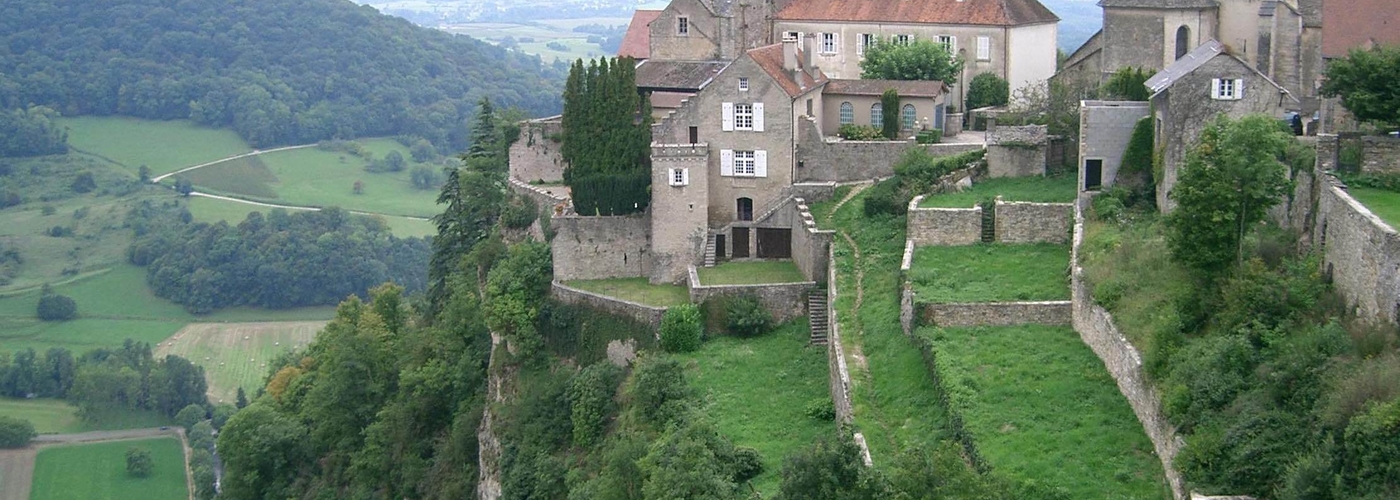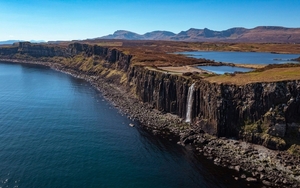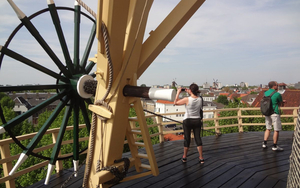Neil Sowerby goes on a gourmet journey through this French foodie paradise
Cheese dreams
MOO! High in the Jura Massif the cow may be queen but on arriving at your overnight farm lodging a chance to meet the herd is not the first thing on your agenda. Unpacking bags, freshening up before dinner at a neighbouring village perhaps? No, we are off in the hire car to a milking parlour up in the high pastures.
Known as ‘La Feé Verte’ in the bohemian ‘Belle Epoque’ 1890s, absinthe definitely got a bad press as an addictive, some times lethal tipple
There’s no doubting the zeal of farmer/gite owner Mickaël Courtet as he steers us through the mud to introduce his beloved Montbeliarde cattle, raw milk from which is used to make AOC Comté cheese. Raw, yes. Pasteurisation would destroy much of the character.
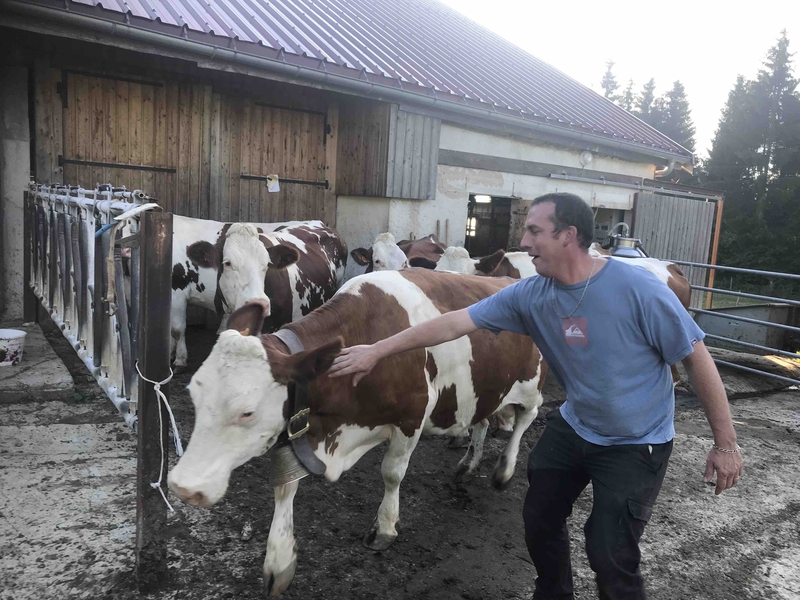
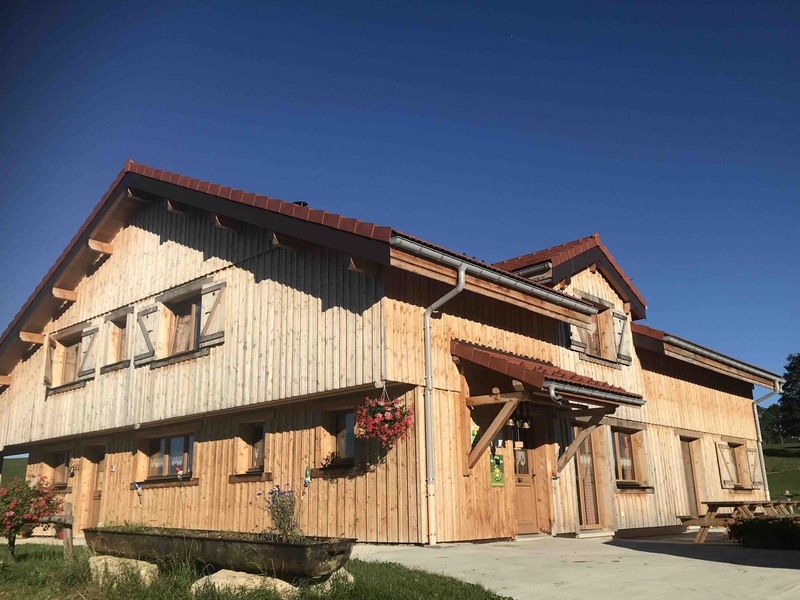
Comté is commonplace in UK supermarket chill cabinets but it’s a pale shadow of the real thing with this AOC guarantee of origin. Rich from unsprayed grazing teeming with wild flowers and herbs, Mickaël’s milk will go to a ‘fruitier’ to be turned into traditional cheese.
There are roughly 150 of these small village dairies, supplied by 2,700 farms across this beautiful, unspoilt region in the east of France.
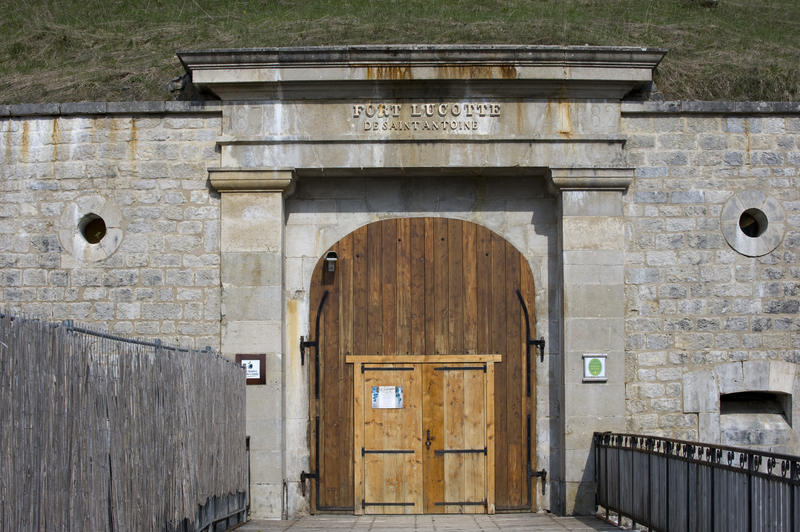
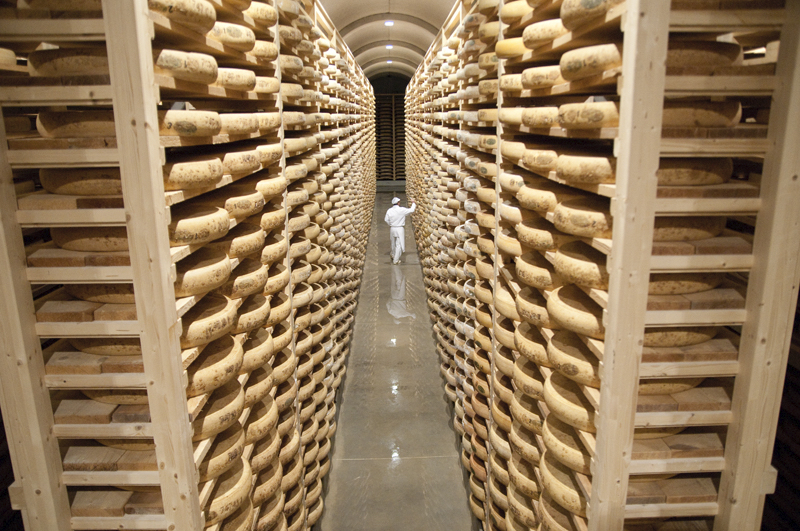
Just five miles from the new, all-wooden B&B, La Ferme de Fleurette, run by Mickaël and Celine in the hamlet of Les-Hopitaux-Vieux, is Le Fort de Saint Antoine, where many of the cheeses will be sent to mature for anything up to 20 months. It is an actual fortress, part of a 19th century border chain instantly rendered obsolete by new powerful weaponry and converted to its present role in 1966.
Today, offering perfect conditions, it is home to a staggering 100,000 30kg cheese wheels, resting on spruce wooden shelves soaring to the vaulted ceiling. Too high for ladder, so robots are required to turn the weighty cheeses to encourage their development. It’s a spectacular place to visit.
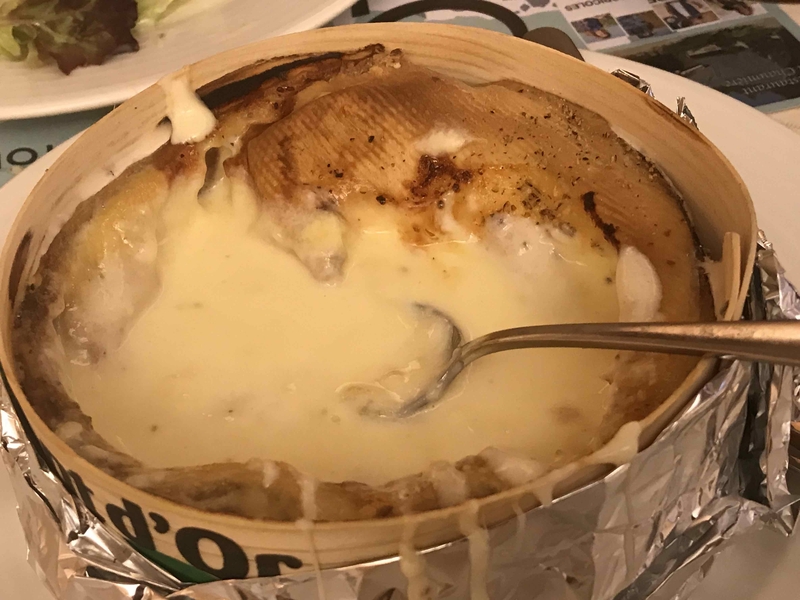
So had we had our fill of cheese? No way. With perfect timing we had arrived in the region when the first Mont d’Or, soft cheeses of the season were released. The centrepiece of our dinner that night was a whole one baked in its spruce box with plenty of spuds to soak up its sappy creaminess, far superior to a fondue. Mont d’Or (hill of gold) is named after a panoramic local peak in this sub-Alpine region of rolling, forested hills.

At the rather smart Fruitiere des Lakes at Labergement-Sainte-Marie we watched various artisanal cheeses being made and sampled Comtés of all ages to discern how they vary. Plus we met local speciality, Morbier with its distinctive blue-black line in the middle. Originally farmers who didn’t have enough milk from the morning’s milking would cover the curds with an ash layer to protect it before adding the evening’s milk. These days they use veg charcoal to give it that signature look.
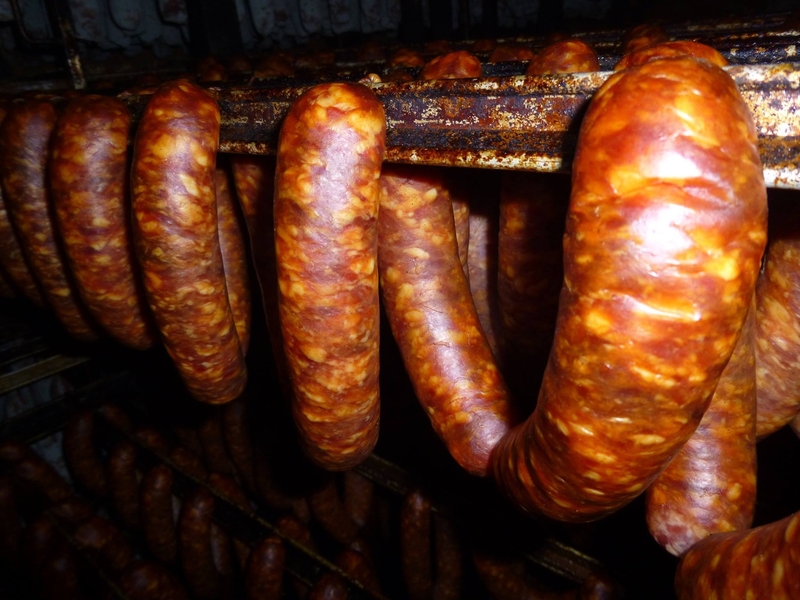
Smokin' Bangers
It could only be France, turning a vintage sausage processing plant into a tourist attraction, but here we are in a pitch black, 18 metre high smokehouse (or tuyé), being given a ‘son et lumiere’ presentation about Saucisse de Morteau. Feeling ever so slighlty kippered (the actual smoking is done overnight). Welcome to the hilltop Tuyé du Papy Gaby in Gilley, flagship of the few remaining tuyés with their pyramid chimneys that once dotted the region. Morteau sausages, strongly flavoured, dense and uncooked, take their name from the city of that name in the Doubs department. The filling is from pigs partially fed on the whey from the cheese industry; the smoking process takes 48 hours, using sawdust from juniper and conifer. In contrast to the smokehouse the shop/cafe is a pleasant, airy spot to sample all the local specialities.
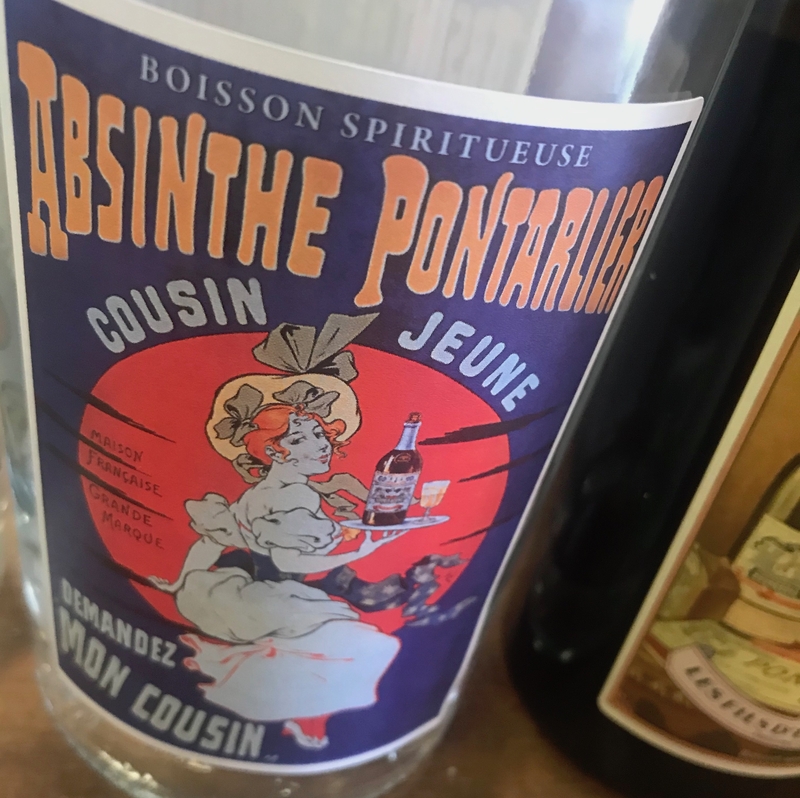
Absinthe - the green fairy flutters to deceive
Known as ‘La Feé Verte’ in the bohemian ‘Belle Epoque’ 1890s, absinthe definitely got a bad press as an addictive, some times lethal tipple. Certainly, among the desperate, its sky-high alcohol levels didn’t take any prisoners. These days it is regulated carefully but I’m still wary of broaching a bottle of 1804 Absinthe Sauvage given me by the Distillerie Pernot, outside world absinthe capital Pontarlier. Distilled using foraged wild wormwood from the mountain forests, it registers a whopping 68%.
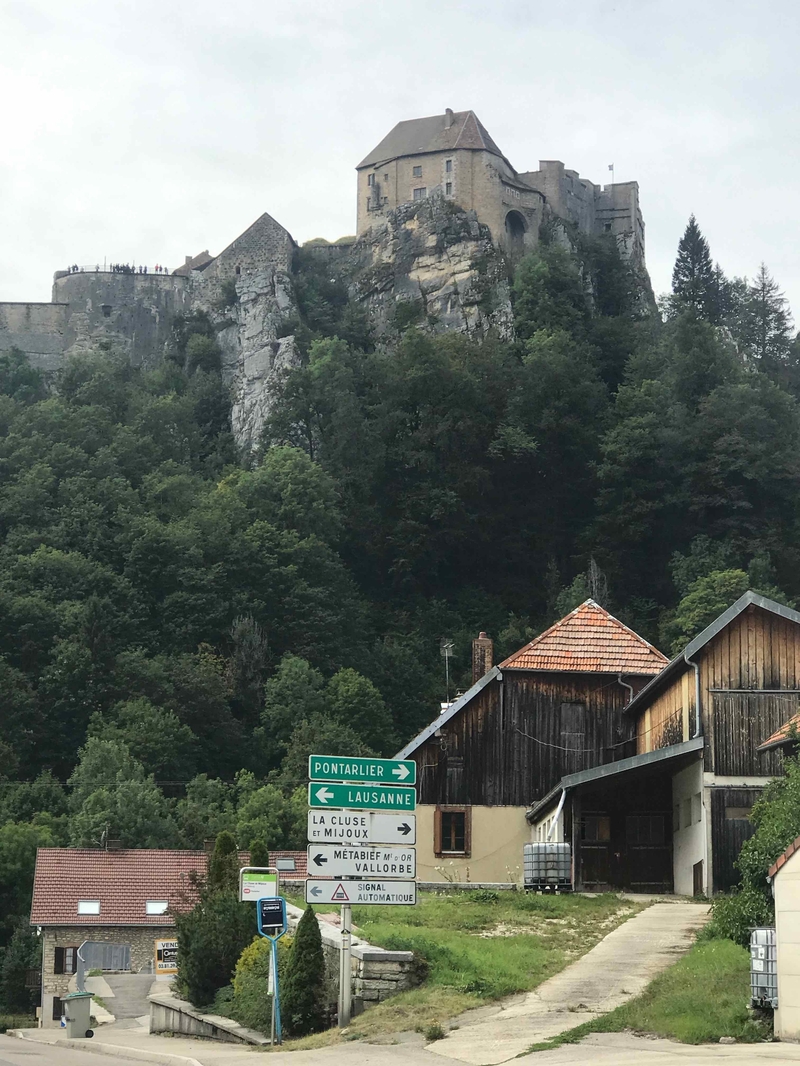
This ultra-traditional distillery sits in the shadow of the Chateau de Joux – by turns medieval stronghold, border fortress and prison on its romantic crag. The century-old Distillerie Pernot only moved to its current base at La Cluse-et-Mijoux in the shadow of the Chateau a decade ago but the atmospheric building has its own history in the absinthe trade.
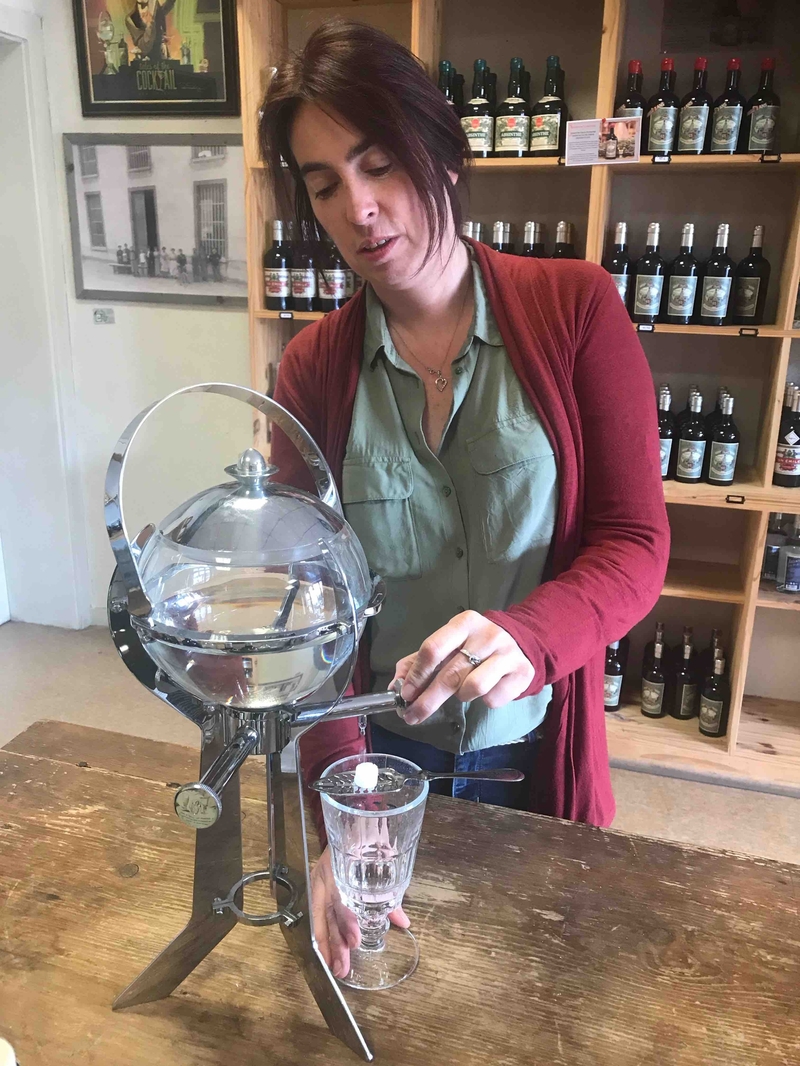
Absinthe is an anise-flavoured spirit (Pernod and Pernot, there are links) derived from botanicals, including the flowers and leaves of Artemesia absinthium ("grand wormwood"), together with green anise (different from star), sweet fennel, and other medicinal and culinary herbs. I love the classic absinthe ritual of placing a sugar cube on a flat perforated spoon, which rests on the rim of the glass containing a measure of absinthe which is diluted with three parts of water. Pernot produce a wide array of variants, utilising other bitter plants such as gentian. One tip, if you work your way through several of these at a tasting (by appointment) walk it off up to the Chateau or, as we did, enjoy a leisurely lunch at the simple Auberge du Chateau de Joux on the main road.
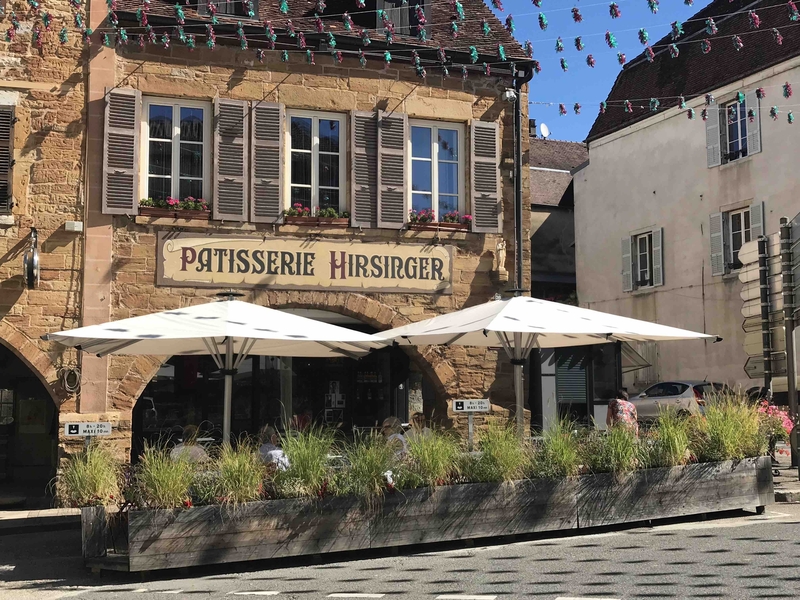
Chocolate on another level
The Swiss across the nearby border do not have a monopoly on quality chocolate and in Arbois, centre of the Jura wine industry you’ll discover one of France and the world’s finest chocolatiers. The name gives the game away – Hirsinger. The family hail originally from Alsace, but for over a century their patisserie has been a fixture in the town’s pivotal Place du Liberté.
Now fourth generation chocolatier Édouard Hirsinger, one of a select few ‘MOF’ pastry chefs allowed to wear red, white and blue stripes on their chef’s jacket collar, has taken it to the next level. For his ‘Chocolat Vivant’ he favours unusual spices and flavour combinations, while scouring the globe for the finest cacao beans. Everything we tasted in the kitchen was sublime.
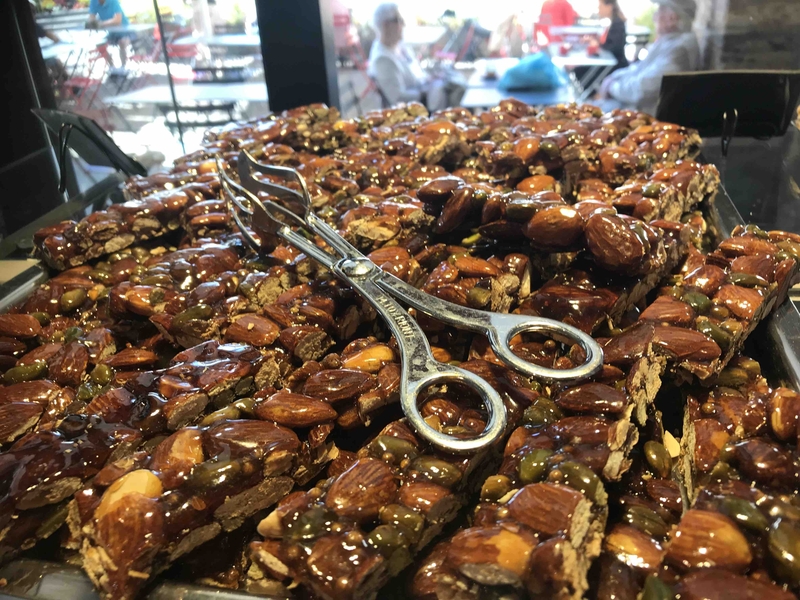
Ask Edouard to show you his basement chocolate museum – a treasure trove of vintage baking equipment, ice cream moulds and evocative memorabilia. We were invited into his tranquil, walled kitchen garden, where he presented us with a sprig of absinthe (wormwood).
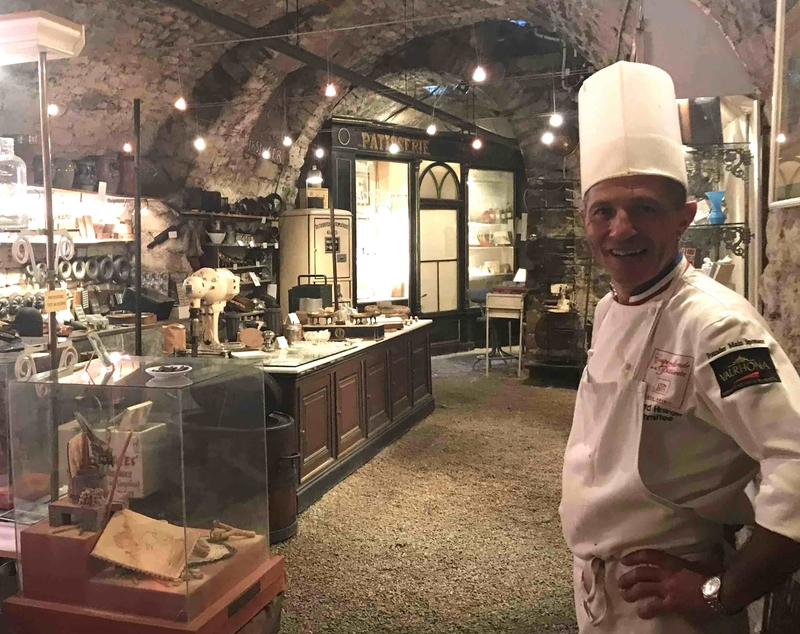
It was a shock to the system to slip back into the town centre, past the Louis Pasteur Museum (the only house he ever owned) to a genuine Jura culinary landmark – La Finette. Rustic inn is the style for both decor and food. Watched over by several animal heads, we tucked into Jura’s most famous dish, Poulet au Vin Jaune where Bresse chicken pieces are cooked with morel mushrooms, cream and the the region’s ‘yellow wine’ – held six years in barrel without topping up under a ‘veil’ of yeast until it taste sherry-like. Lesser places might just use the cheaper Savagnin wine. Whatever, La Finette’s didn’t impress.
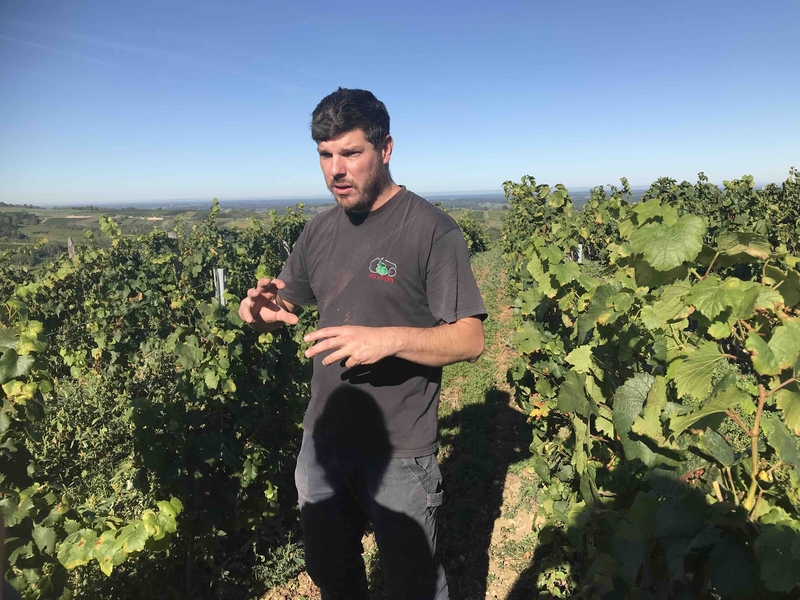
Jura wine - Call me Jaune
The rest of Arbois certainly did. It would make a charming base for visiting local vineyards, all of which are within easy reach. This is among France’s smallest wine regions, clocking in at just 2,000 hectares. This just adds to the warmth of the welcome at cellar doors. None greater than Domaine Désiré Petit in the village of Pupillin, run by the third generation of the Petit family – Damien and Anne-Laure. Their respect of tradition is shown by the museum of heritage winemaking equipment collected by Damien but this is allied to the 27 hectares of vineyards’ transition to sustainable and organic practice.
They are not alone in Jura. This is an exciting place to make wine. We were delighted to discover vibrant red grape varieties we’d never heard of – Trousseau and Ploussard (or Poulsard, depending on the town). Cheadle importers Boutinot distribute the Trousseau and a ’baby brother’ of Vin Jaune, the oxidatively-aged Blanc Savagnin AOP, and a ‘natural’ no added sulfites Chardonnay, Le Grapiot, from 50-year-old vines. As with Mickaël and his cattle a trip with Damien among the vines (it was mid-harvest) was testimony to the quest for quality among Jura’s new generation.
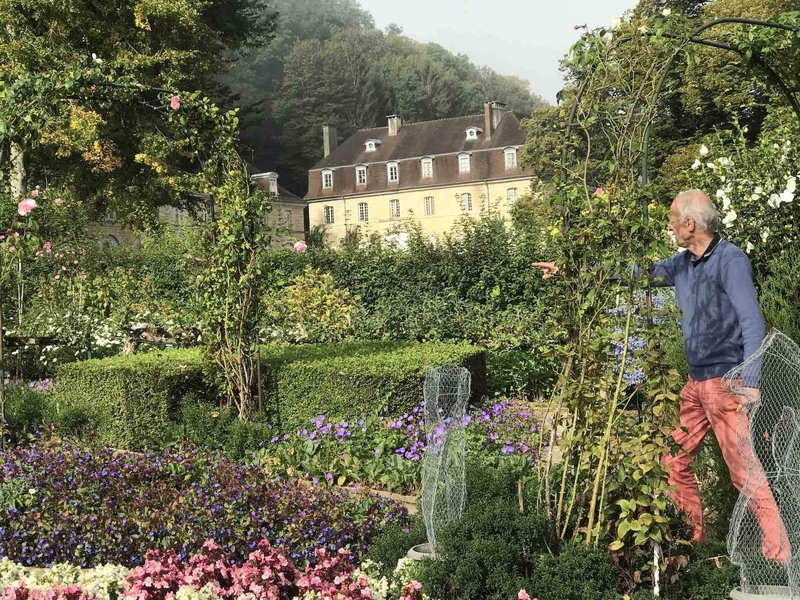
Chateau D'Arlay - Artisan aristos
Not that the keepers of the traditional flame are being left behind. Chateau d’Arlay, the oldest wine-growing chateau in France (dating back to 1070, more recently the labels haven’t altered for a century), looks the part and their surprisingly innovative wines certainly taste the part. Before sampling their wares, which include benchmark Vin Jaune and a remarkably pure Chardonnay to rival White Burgundies, it’s worth touring the vat grounds. They are open to the public from May to October and from June to mid-September the interior of the chateau and the cellars can be toured.
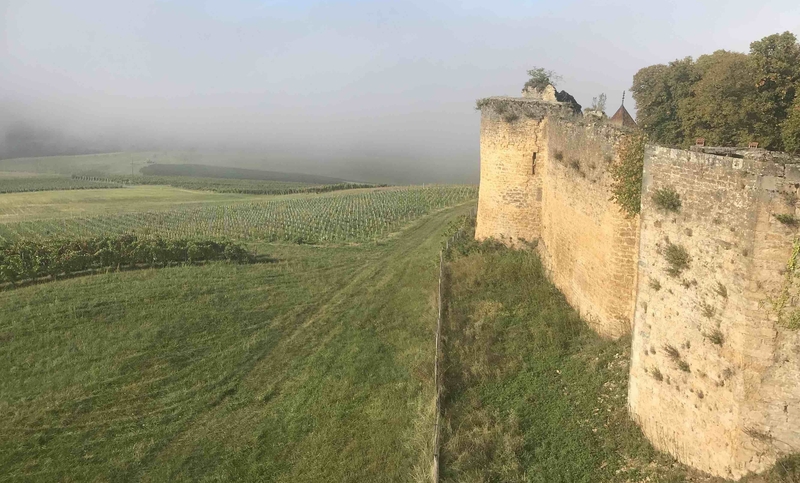
It was built in the late 18th century by the Countess of Lauraguais, who was guillotined in the Revolution. Search the goat-haunted, lime tree woods above its formal gardens and there’s a ruined fort overlooking the vineyards, atmospherically misty when we were there.
Back in the public tasting room chatelain Alain de Laguiche, who has run the estate since 1985, poured us a limited edition Chateau d’Arlay Vin Jaune from 2011. This biodynamic Cuvee Protéodie was treated during its long maturation in casks to regular sound waves from an audio system designed to stimulate the growth of yeasts. Sounds wacky but the wine tasted different (and more delicious) than the standard cuvee from that vintage. Well, we told you Jura wine was cutting edge.
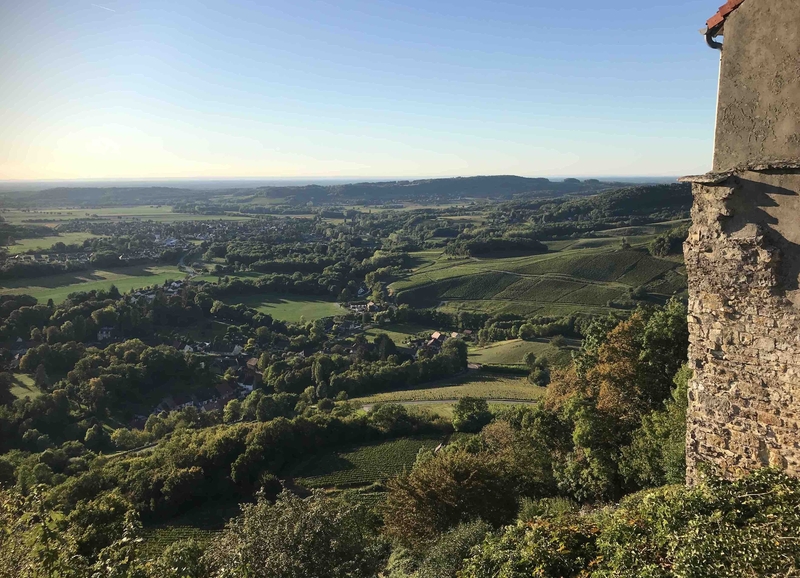
Chateau-Chalon - If it's good enough for Rick Stein....
If the views of the Bresse plain from D’Arlay are impressive enough, those from Chateau-Chalon are mind-blowing. This hill-top wine village – one of the Plus Beaux Villages de France – features in BBC2’s Rick Stein’s Secret France and he stayed and filmed at the clifftop Relais des Abbesses. As later guests we didn’t get to taste the sautéed trout with Savagnin, the recipe for which features in the spin-off cookbook.
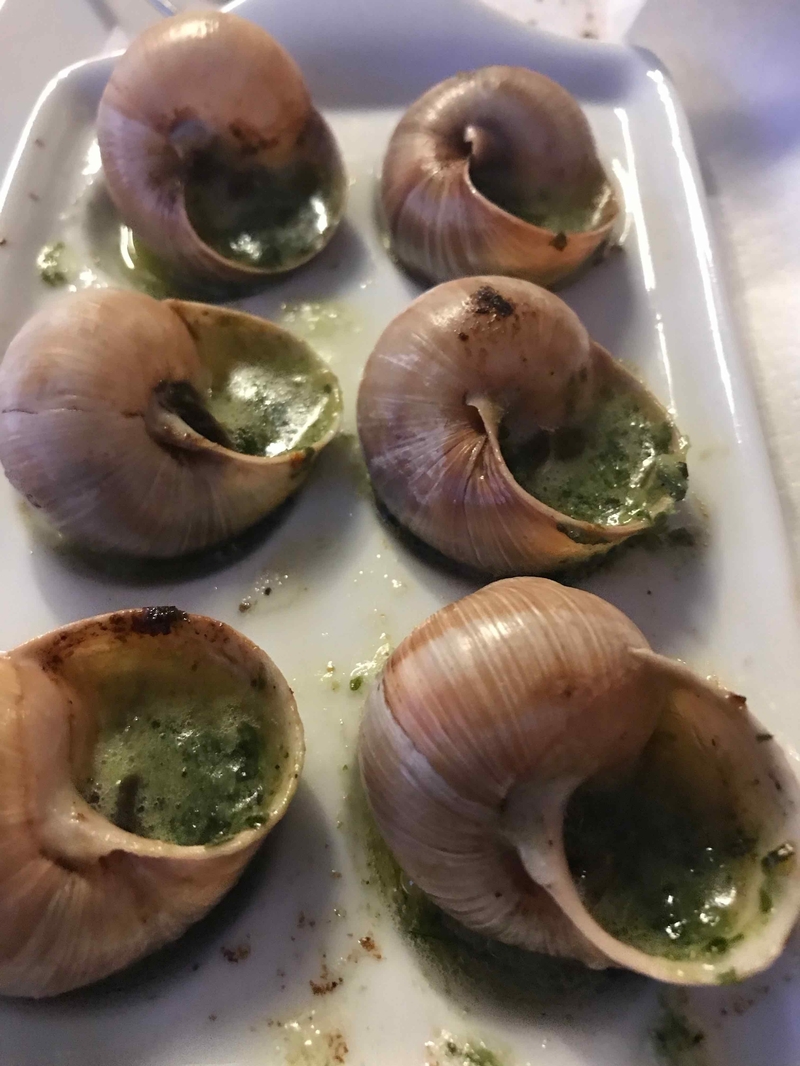
We were booked into the neighbouring Le P’tit Castel, which shares the same vertiginous vistas. This unfussy, traditional restaurant served us snails with garlic butter and large Charolais steaks, washed down with Ploussard – what else?
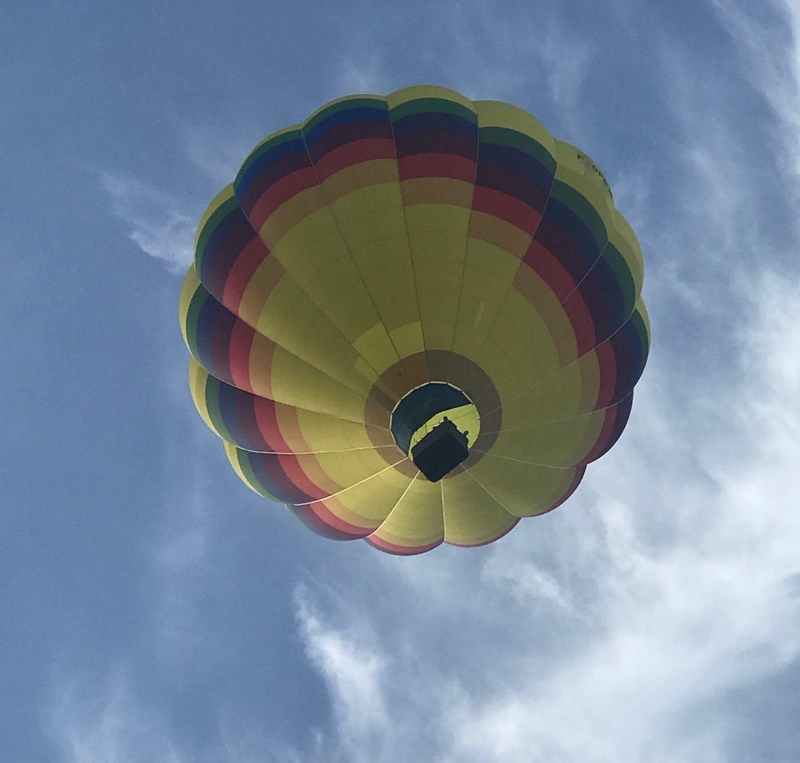
After which, we wandered around Chateau-Chalon lamplit ginnels, even more evocative than during the day. Never did it feel like a tourist honeypot and thanks to our hosts Anne-Marie and André the Relais was one of those rare period chambre d’hotes that genuinely feel like a home from home. The arrival of a hot air balloon immediately above their garden terrace added to the magic.
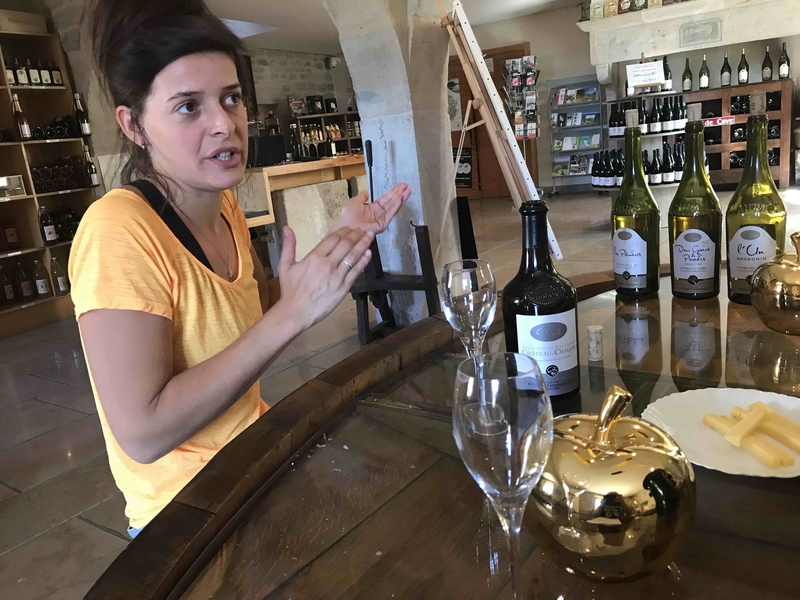
For tasting in the village itself visit Jean and Chantal Berthet-Bondet, relations of the Petits, at the Domaine of that name in the Rue de la Tour. Their wines are consistently excellent as are those of another of those new generation (the ninth) wineries – run by sister and brother Clémentine, 23, and Basten, 25 – Domaine Baud Generation. Their organic holdings are in Le Vernois, a 10 minute drive away on the plain. Their Ploussard 2018, normally a pale delicate red, is a ripely dark 14 per-center thanks to that sweltering vintage.
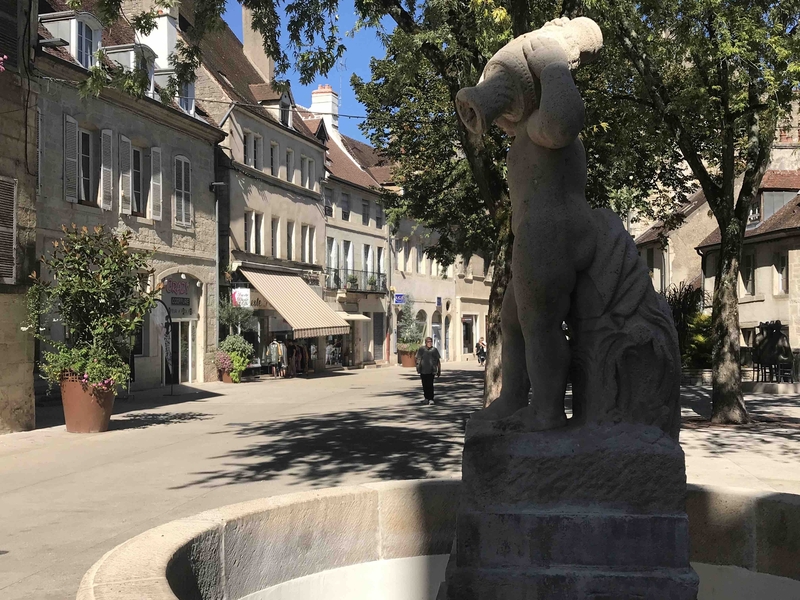
Follow the trail of the perched cat in Dole
One of the joys of travel is blowing into a place that far exceeds your expectations. Step forward Dole, a warren of turreted Renaissance mansions and waterways spilling from the River Doubs. From the local tourist office in the Place Jules Grévy grab a map in English of ‘Le Circuit du Chat Perché’, named after the feline protagonist of local boy Marcel Aymé’s famous stories. Bronze arrows and cat figures in the pavement usher you round the city’s historic sites, dating back to when it was the coveted capital of Comté under Burgundy and then the Hapsburgs.
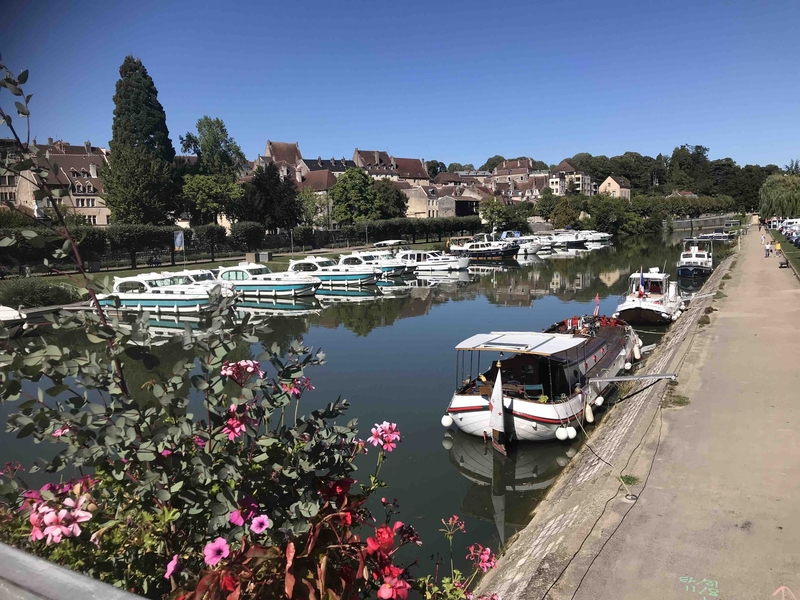
Wander the alleys and you’ll discover the canalside birthplace of Louis Pasteur, an old tannery turned museum by the Canal du Rhône au Rhin. Medicine and winemaking both benefited from his discoveries.
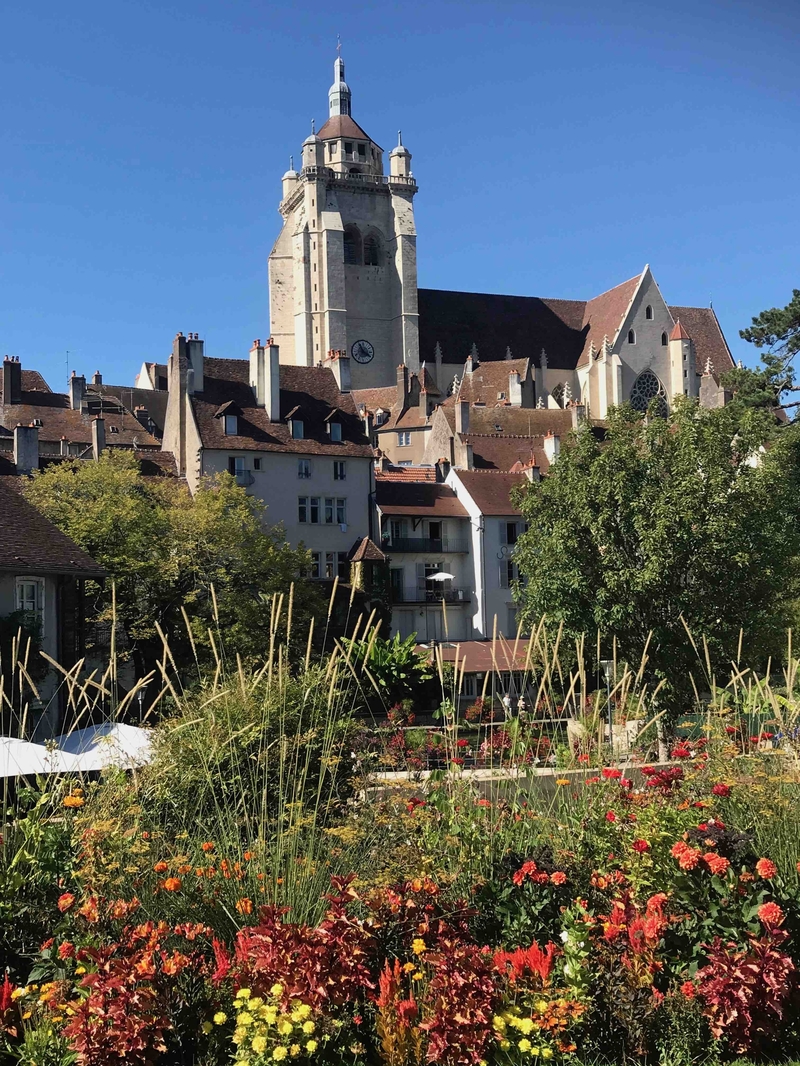
Turn off the flower-bedecked towpath and you’ll find the secret Fontaine aux Lepreux (lepers’ fountain). Also off the Rue Pasteur is an exceptional local bistro that feels equally secret – Le Grand Sel. After a tranquil boat cruise up the Doubs and a visit to the ornate Collégiale Notre-Dame church, whose bell-tower defines the townscape we tucked into local lamb and a cheese tray that showcased all those great Jura cheeses and more. To drink, Chardonnay, then Trousseau. Elsewhere in town watch out for foie gras paired with Dole speciality pain d’épices (spice loaf), made with rye flour and flavoured with honey, clove, aniseed and nutmeg. As always in the Jura, it’s hard not to eat simply and well.
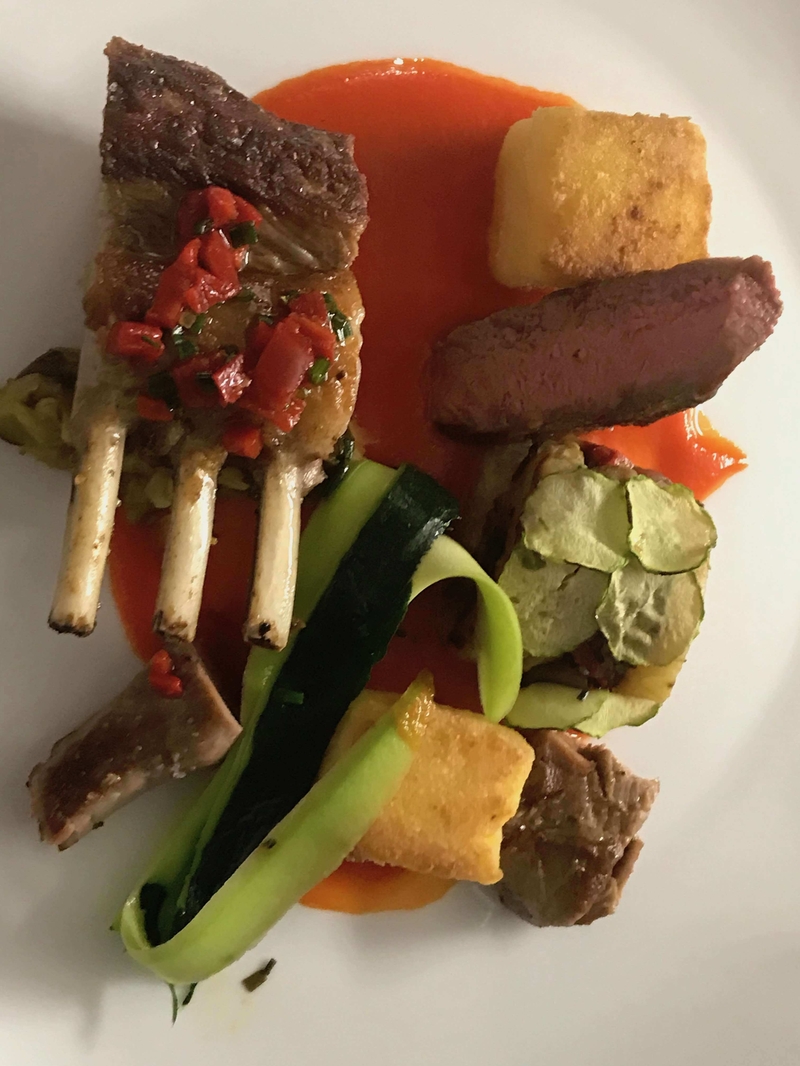
Factfile
Neil flew from Manchester to Geneva with easyJet. Prices vary according to the season but from as little as £21 one way. To cross the border from Switzerland to France he hired a car with Europcar. Distances everywhere in the Jura are not vast and the roads are generally quiet.
He stayed at… La Ferme de Fleurette, 14 rue des Agettes – 25370 Les-Hopitaux-Vieux +33 (0)6 33 25 34 01. Homely introduction to Jura’s sylvan hills (and dairy products).
Relais des Abbesses, 36 rue de la Roche 39210 Chateau-Chalon + 33 (0)3 84 44 98 56. Highly recommended, quirky and scenic.
Moulin des Ecorces, 14 Allée du Pont Roman – 39100 Dole + 33 (0)3 84 72 72 00. A converted mill, surrounded by Dole’s waterways, an easy walk into the centre.
A great introduction to the wine, food and customs of the region is Jura Wine by Wink Lurch (Wine Travel Media, £25).
For essential information cross the whole region visit the Bourgogne-Franche-Comté Tourisme website.





